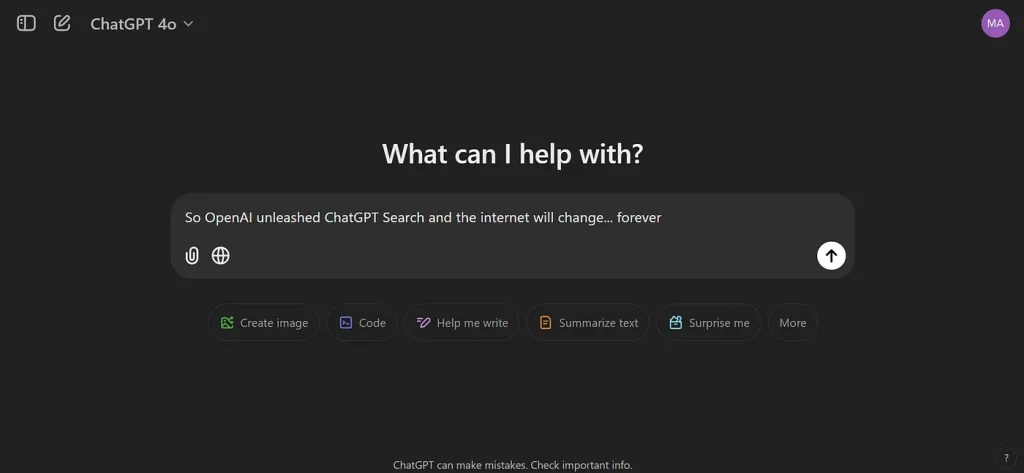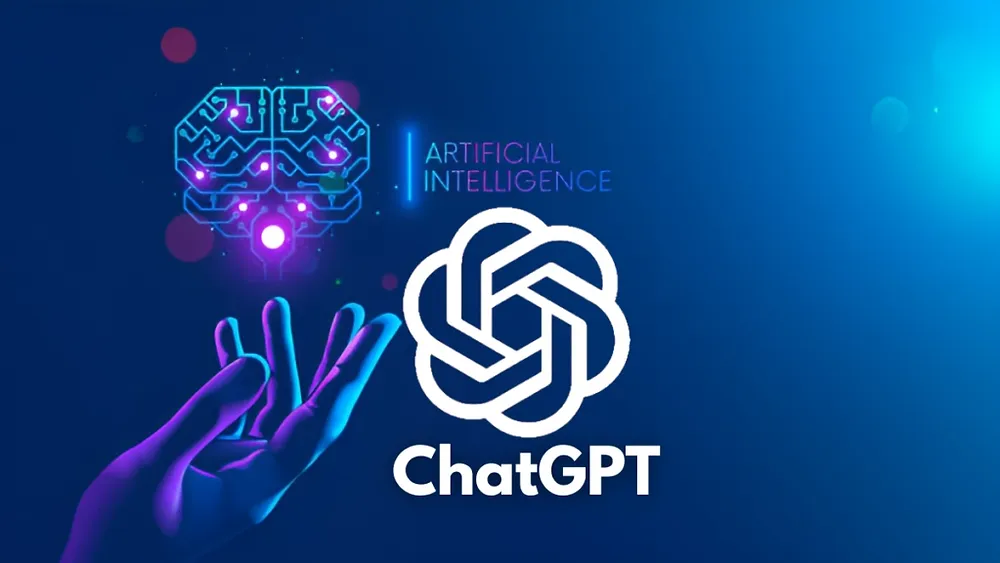ChatGPT Unleashes Free AI Search Engine for the Masses
In a groundbreaking move that’s set to reshape how we interact with information, OpenAI has democratized access to its powerful AI search engine by making it available to all ChatGPT users. The company is also announcing this revolutionary development in its festive ’12 days of ship-mas’ livestream, following the launch of its previous subscription only model in October.
The free rollout of this sophisticated AI search engine comes with one simple condition: in order to use it users need to have a chatGPT account and be logged in. By making this minimal barrier to entry, millions of users around the world can now leverage the power of AI driven search without digging their wallets too deep.
Time to Say Goodbye to Traditional Search?
The mobile version of ChatGPT’s AI search engine has received a substantial makeover, bringing it closer to the familiar interface of conventional search engines while maintaining its innovative edge. The system now offers, when users look for local establishments that includes a cozy café or a trendy nightspot, results in a pleasing visual format, with images, reviews, and opening hours.
But it doesn’t stop there. The AI search engine takes local search to the next level by integrating mapping capabilities directly within the app. Users can access comprehensive information about venues and get directions without leaving the ChatGPT environment, creating a seamless experience that bridges the gap between AI assistance and practical utility.

Speed Meets Intelligence in Perfect Harmony
Perhaps one of the most impressive improvements is the AI search engine’s new approach to specific queries. These days, ChatGPT knows when users are looking for certain types of websites, like travel booking platforms or online shopping sites, so it will gladly provide links that pour through to the websites before it begins to write out its full analysis. This clever optimization delivers immediate access to the resources that users need, and leaves the AI behind doing its work while it’s doing it behind the scenes.
The system’s AI search engine capabilities have been further enhanced with the integration of Advanced Voice Mode, although this premium feature remains exclusive to paid subscribers. This voice enabled function automatically pulls current information from the web making it a very useful tool for users who like doing things in their voice with their AI assistant.

The Evolution of AI-Powered Search
The latest iteration of ChatGPT’s AI search engine represents a significant evolution in how we access and process information. OpenAI has combined traditional search with modern AI through a hybrid system that offers traditional search, but with the modern AI assisted discovery needs.
The AI search engine development is part of a larger series of announcements from OpenAI, which includes the launch of their innovative text-to-image model Sora and the introduction of a premium ChatGPT Pro subscription tier priced at $200 monthly. Taken together, these represent steps openai is taking as a way of extending the limits of artificial intelligence, while growing its ability to provide the benefits of artificial intelligence into the broader public.

Looking Ahead: The Search Revolution
The AI search engine’s widespread availability marks a pivotal moment in the democratization of AI technology. And since people are starting to play around and discover how and what they’ll use this new search paradigm to find, it is likely to generate big changes in how we interact with and use information online. This embarks on the integration of AI based search functionality into the tools that we use on a regular basis, not just a technology development, but an important shift in our domain of search and a means of discovering knowledge.
In this transformative release artificial intelligence and human enquiry work in unison to bring you more efficient and intuitive ways to surf the web and find what you’re looking for. Based on how these new capabilities help users to search and interact with information online, we may be at the dawn of a revolution of how we search for and interact with information on the web.
